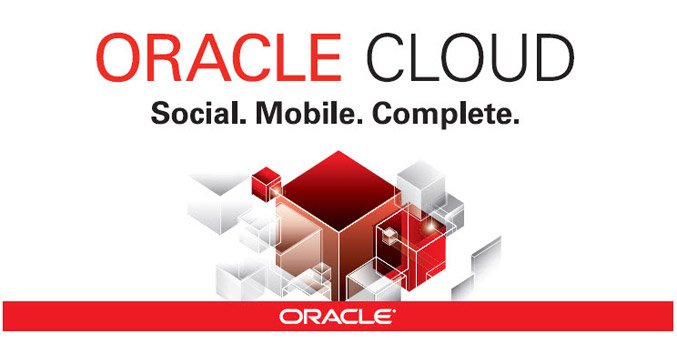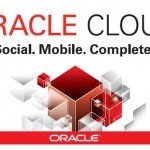.jpg) Dramatic decreases in the cost of Solid State Disk (SSD) over the past five years are changing Oracle architectures. Deploying SSD in place of hard disk drives can result in immediate performance gains as both Random Access Memory (RAM) and Flash SSD eliminate bottlenecks caused by mechanical hard disk I/O latency.
Dramatic decreases in the cost of Solid State Disk (SSD) over the past five years are changing Oracle architectures. Deploying SSD in place of hard disk drives can result in immediate performance gains as both Random Access Memory (RAM) and Flash SSD eliminate bottlenecks caused by mechanical hard disk I/O latency.
The increasing popularity of SSD is challenging DBAs to adapt their database performance tuning methodologies in order to optimize application performance and return on investment.
The book from Mike Ault shows how to accelerate Oracle databases and target solid state disk for maximum benefit, as Rampant Press, the publisher, says.
“Solid State Disk is changing the game for Oracle databases, and how we think about performance tuning,” said Ault.
 “Whereas in the past a poorly-designed database might take six months and $500,000 in consulting costs to repair, simply installing SSD can mean the database immediately runs more than ten times faster for a fraction of the cost of repairing the source code. We wrote the book specifically for DBAs so that they could easily understand the benefits and limitations of SSD in their specific circumstances, and have all the tools they need to benchmark effectively. Any DBA who wants to keep their performance tuning skills relevant will read this book.”
“Whereas in the past a poorly-designed database might take six months and $500,000 in consulting costs to repair, simply installing SSD can mean the database immediately runs more than ten times faster for a fraction of the cost of repairing the source code. We wrote the book specifically for DBAs so that they could easily understand the benefits and limitations of SSD in their specific circumstances, and have all the tools they need to benchmark effectively. Any DBA who wants to keep their performance tuning skills relevant will read this book.”
According to the publisher, Oracle Performance Tuning With Solid State Disk provides a comprehensive guide that enables DBAs to make the transition to SSD successfully and with confidence. By accelerating Oracle databases, applications can handle more transactions, more concurrent users and deliver higher profits and productivity gains.
“It is a clear and definitive guide for converting existing systems from hard disk to SSD technology and empowers DBAs to make the logical choice of how and when to use SSD. The book provides an in-depth examination of testing methodologies, with clear examples, that DBAs can use to effectively benchmark and improve their own specific databases,” says Rampant Press.
Mike Ault is an Oracle expert and a prolific author, who has published more than twenty Oracle-related books. He was an Oracle database specialist at Quest Software and has has five Oracle Masters Certificates more than 17 years of experience as an Oracle DBA and consultant.
He is Oracle guru in residence at Texas Memory Systems, where he oversees Texas Memory Systems’ sponsorship of StatspackAnalyzer.com, a free tool that is popular in the Oracle community.
As a special introductory promotion, Texas Memory Systems will be giving away a limited number of free copies to visitors to its booth at Oracle Open World 2009 from October 12th through 15th.


 Market research firm Infonetics Research released its Enterprise Session Border Controllers report for the 2nd quarter of 2013 (2Q13). This report tracks the eSBC session shipments and vendor revenue.
Market research firm Infonetics Research released its Enterprise Session Border Controllers report for the 2nd quarter of 2013 (2Q13). This report tracks the eSBC session shipments and vendor revenue.
 British telecom operator BT sued Google in the United States for infringement of patents in areas such as mobile access to maps, Reuters.
British telecom operator BT sued Google in the United States for infringement of patents in areas such as mobile access to maps, Reuters.
.jpg) Dramatic decreases in the cost of Solid State Disk (
Dramatic decreases in the cost of Solid State Disk ( “Whereas in the past a poorly-designed database might take six months and $500,000 in consulting costs to repair, simply installing SSD can mean the database immediately runs more than ten times faster for a fraction of the cost of repairing the source code. We wrote the book specifically for DBAs so that they could easily understand the benefits and limitations of SSD in their specific circumstances, and have all the tools they need to benchmark effectively. Any DBA who wants to keep their performance tuning skills relevant will read this book.”
“Whereas in the past a poorly-designed database might take six months and $500,000 in consulting costs to repair, simply installing SSD can mean the database immediately runs more than ten times faster for a fraction of the cost of repairing the source code. We wrote the book specifically for DBAs so that they could easily understand the benefits and limitations of SSD in their specific circumstances, and have all the tools they need to benchmark effectively. Any DBA who wants to keep their performance tuning skills relevant will read this book.”